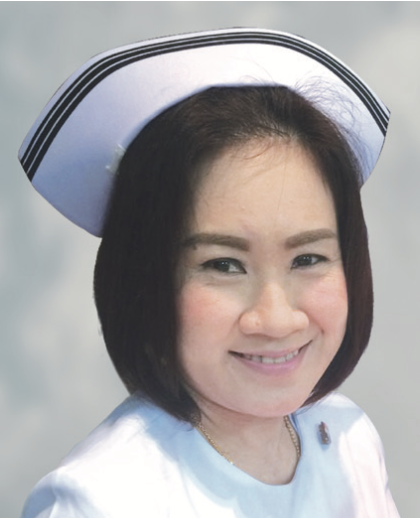Symptom Management Strategies of Patients with Solid Cancer during Receiving Naïve Chemotherapy
Main Article Content
Abstract
OBJECTIVES:
The aims of the study were to evaluate patients with solid cancer who received chemotherapy using symptom management strategies (after being educated about and informed on such strategies), and to determine parameters that influenced patients in applying symptom management strategies during chemotherapy treatment.
MATERIALS AND METHODS:
This was a prospective study conducted in patients with solid cancer whom were admitted for the first chemotherapy at either Wattanosoth Hospital, Samitivej Sukhumvit Hospital, Phyathai2 Hospital, Samitivej Sriracha Hospital or Chonburi Hospital. The patients were given information regarding the side effects of chemotherapy and were given an outline of symptom management strategies by nurses. The extent of the severity of side effects of chemotherapy and the management of symptoms were assessed using both the therapy-related symptom checklist (TRSC) and the self-care method (SCM).
RESULTS:
One hundred and forty nine patients with solid cancer who received the first chemotherapy were enrolled in the study. The 5 commonest side effects of chemotherapy included: hair loss (81.21%), change of taste perception (79.19%), skin change (75.17%), loss of appetite (74.50%), and difficulty sleeping (73.15%). The most common symptom management strategies used were “taking suggested medication” (27.15%), followed by “changing food and lifestyle choices” (26.62%). The patients’ level of education and access to data resources on the management of side effects were independent factors that influenced patients in applying symptom management strategies. CONCLUSON: Knowledge of the side effects of chemotherapy and self-care management is essential for patients with solid cancer who are receiving chemotherapy. A symptom management strategy is not only there to ameliorate a patient’s affliction but also to optimize their quality of life during the period of chemotherapy course.
Article Details

This work is licensed under a Creative Commons Attribution-NonCommercial-NoDerivatives 4.0 International License.
This is an open access article distributed under the terms of the Creative Commons Attribution Licence, which permits unrestricted use, distribution, and reproduction in any medium, provided the original work is properly cited.
References
2. Wongwitdecha N. Cancer Medication. Pharmacology,1994;579-82.
3. Intarasombat P, Hanprasitkam K, Ratanathatathorn V. Effects of Promoting Patients’ Participation in Self-care on Symptom distress, Mood state and self-care deficit in Cancer Patients Receiving Chemotherapy. Ramathibodi Nursing Journal;2:57-68.
4. Pruksasri S. Holistic Self-care Behavior of Women after Mastectomy. Thesis of Master of Nursing Science Program in Adult Nursing, Graduate School, Prince of Songkla University 2013.
5. Norradechanont C. Chemotherapy: Principles of Nursing. Bangkok: Faculty of Nursing, Mahidol University 2004.
6. Dodd M, Janson S, Facione N, et al. Advancing the science of symptom management. J Adv Nurs 2001;33: 668-76.
7. Chou FY, Dodd M, Abrams D, et al. Symptoms, self-care, and quality of life of Chinese American patients with cancer. Oncol Nurs Forum 2007;34:1162-7.
8. Piamjariyakul U, Williams PD, Prapakorn S, et al. Cancer therapy-related symptoms and self-care in Thailand. Eur J Oncol Nurs 2010;14:387-94.


